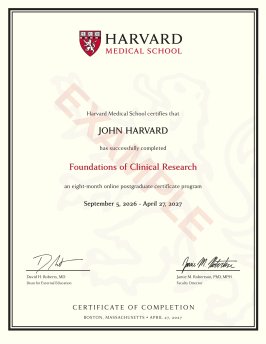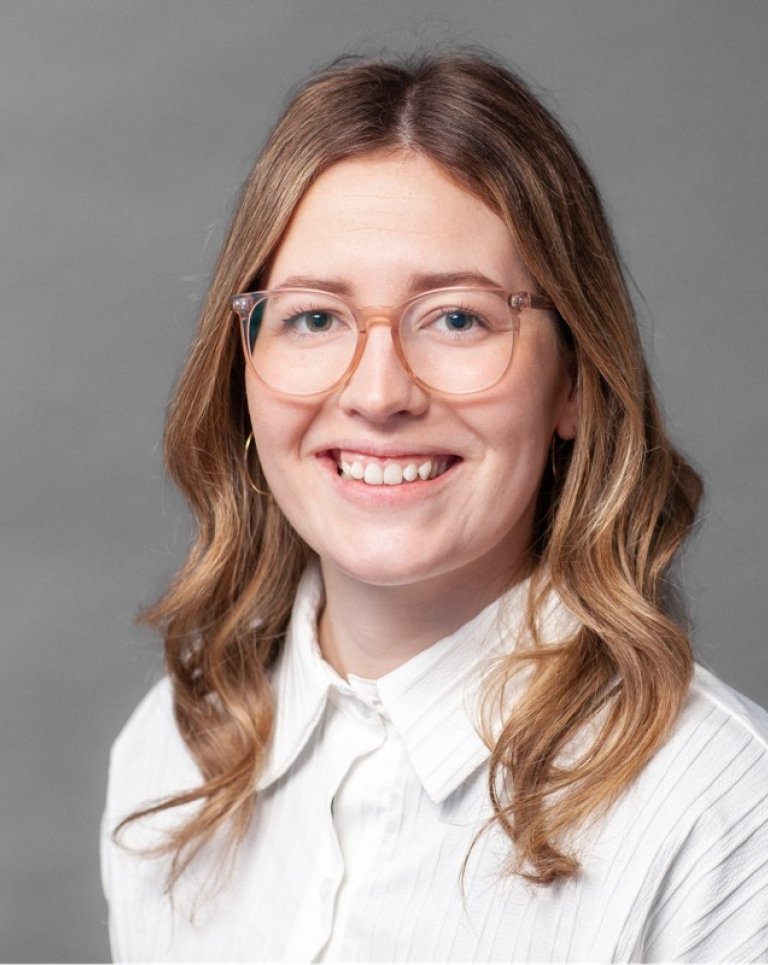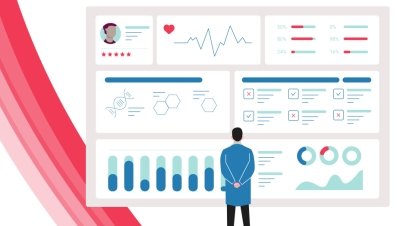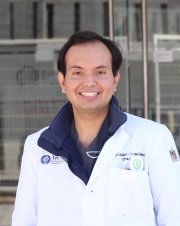Foundations of Clinical Research
- Certificate Program

Launch your clinical research career with essential training in study design, biostatistics, epidemiology, and statistical analysis. This program is designed for health care professionals with limited or no prior experience in clinical research.
- Live Online
This program requires attendance at three live virtual workshops.
$9,200
Please see more program fee information below. Payment installments are available for this program.
Early Application Deadline:
Certificate
This program offers HMS Associate Member status.
6 Months, 7-10 Hours/Week
Between workshops, you’ll engage with pre-recorded lectures and Stata sessions, attend live faculty-led symposia, tutorials, and seminars, and complete individual assignments.
On This Page
Overview
The primary objective of the Foundations of Clinical Research program is to prepare the next generation of researchers with the critical competencies necessary to evaluate evidence, understand and utilize biostatistics, perform statistical analyses, and embark on their clinical research careers. We strive to ensure that participants develop a robust understanding of designing, implementing, analyzing, and interpreting clinical research studies.
Workshop 1
- September 26–27, 2026
- Location: Live Online
Workshop 2
- January 9–10, 2027
- Location: Live Online
Workshop 3 and Completion Ceremony
- April 3–4, 2027
- Location: Live Online
Learning Objectives
- Demonstrate and apply the foundational concepts of biostatistics and epidemiology
- Develop research questions, formulate testable hypotheses, and design clinical research studies
- Acquire the skills needed to present clinical research effectively
- Critically evaluate medical literature and synthesize key statistical analyses using Stata software
- Assess the ethical principles pertinent to clinical research
About the Program
The Foundations of Clinical Research program is built on the principle that comprehensive training in clinical research is essential for professional growth in the health care field. This training equips researchers with the tools to become engaged investigators and enhances their ability to advance in their careers by deepening their understanding of research evidence. Foundations of Clinical Research is tailored for professionals with little to no experience in interventional or observational studies.
Program Format
This program includes participation in three live virtual workshops. In addition, learners should plan to dedicate an average of 7–10 hours per week to coursework, which involves attending mandatory symposia, tutorials, and seminars, watching online lectures and Stata sessions, as well as completing quizzes, exams, and individual assignments.
Who Should Apply
The Foundations of Clinical Research program is designed for professionals holding an MD, MBBS, MB Bch, PhD, DMD, DDS, PharmD, DNP, BSN, DPT, OTD, RD, PA, MSN or equivalent degree. The program is specifically designed for those with an interest in and aptitude for clinical research who are interested in gaining the skills and knowledge to advance their career aspirations in investigation. Applicants are not required to have prior experience in clinical research or to have authored or contributed to any previous publications.
Upon completing this program, our scholars are equipped with strong foundations in the fundamentals of clinical research and are prepared to take advanced courses to hone these skills.
What You Earn
Learners who complete the program requirements will earn a Certificate of Completion. After completing the Foundations of Clinical Research program, you will be part of a global cohort of health care leaders and earn a certificate of completion from Harvard Medical School. You will become an integral part of a worldwide network of past participants of Harvard Medical School’s professional, corporate, and continuing education programs and courses. You will also be able to join the Harvard Alumni Association (HAA) as an associate member and become a part of an active global network connecting with and supporting each other, facilitating lifelong learning, growth, and success.

Program Faculty and Teaching Team

Jamie M. Robertson
PhD, MPH
- Faculty Director, Global Clinical Scholars Research Training and Foundations of Clinical Research
- Senior Research Scientist, Brigham and Women’s Hospital
- Assistant Professor of Emergency Medicine, Harvard Medical School
Terry Gipson, MFA
Faculty Member in the Harvard College Writing Program
Jamie Robertson, PhD, MPH
Faculty Director, Global Clinical Scholars Research Training and Foundations of Clinical Research
Senior Research Scientist, Brigham and Women’s Hospital
Assistant Professor of Emergency Medicine, Harvard Medical School
Sagar Nigwekar, MD, MMSc
Assistant Professor of Medicine, Harvard Medical School
Assistant Physician, Massachusetts General Hospital
Vanessa Garcia Larsen, MSc, MEd, PhD
International Public Health Nutrition Specialist
Chief of the Risk Factors and Nutrition Unit
Pan American Health Organization/World Health Organization
Elizabeth Mostofsky, ScD, MPH
Instructor in Epidemiology
Harvard T.H. Chan School of Public Health
Heather J. Baer, ScD
Assistant Professor of Medicine, Harvard Medical School
Assistant Professor of Epidemiology, Harvard T.H. Chan School of Public Health
Senior Epidemiologist, Brigham and Women’s Hospital
Susan Kornetsky, MPH
Director of Clinical Research Compliance, Boston Children's Hospital
Paul Bain, PhD, MLIS
Manager of Research and Instruction, Francis A. Countway Library of Medicine, Harvard Medical School
Julie E. Buring, ScD
Professor of Medicine, Emerita, Harvard Medical School and Brigham and Women's Hospital
Professor of Epidemiology, Emerita, Harvard T.H. Chan School of Public Health
Susan Kornetsky, MPH
Director of Clinical Research Compliance, Boston Children’s Hospital
Martin Ingi Sigurðsson, MD, PhD
Professor of Medicine, University of Iceland
Eve Valera, PhD
Associate Professor of Psychiatry, Harvard Medical School
Research Scientist, Massachusetts General Hospital
Program Fee
Applicants who submit a complete application by the early deadline and are admitted into the program will receive $525 off the program fee. This discount cannot be combined with any program fee assistance awarded. Program fees do not include educational materials. For more information, visit Learner Policies.
| Program Fee | |
|---|---|
| Early Application Deadline: July 1, 2026 | $8,675 |
| Final Application Deadline: August 26, 2026 | $9,200 |
Payment Installments
The full program fee should be paid two weeks prior to the start of the program. However, a payment installment option is available for this program and is outlined in the payment schedule. There are no fees or interest charges associated with the payment plan. However, payments must be made on time to remain eligible to participate in the course and maintain access to course materials.
Full terms for payment plan enrollment can be reviewed here.
| Payment Schedule | Prices |
|---|---|
| Deposit Immediately | $2,300 |
| Payment Installment 2 - October 5, 2026 | $2,300 |
| Payment Installment 3 - November 2, 2026 | $2,300 |
| Payment Installment 4 - December 7, 2026 | $2,300 |
Attend an Information Session
Alumni Coffee Chat
Next Session: February 19, 2026 | 9:00 AM
Faculty Information Sessions
Next Session: March 5, 2026 | 12:30 PM

Alumni Ambassador Spotlight
Khutaija Noor, MBBS
Clinical Researcher, Amicis Clinical Trials
What advice would you share with professionals considering Foundations of Clinical Research?
This program is more than an academic milestone- it’s a gateway to authentic leadership and high-quality dissemination in global research. I advise future participants to:
- Approach with Purpose: Have a clear vision for how the knowledge will be applied. The rigorous skills learned in biostatistics and study design are the toolkit for true research independence.
- Leverage the Credential: Understand that the Harvard certification is a powerful signal. It will grant you immediate credibility and access to opportunities, such as becoming a Peer Reviewer or securing competitive speaking slots, which accelerate your career far beyond the classroom.
- Think Globally and Sustainably: This program provides the foundation necessary not just to do research, but to evaluate, mentor, and build a high-quality, ethical research portfolio. The ultimate value lies in the long-term capacity it builds for driving meaningful, lasting change in global health equity.
"Before joining the program, I might have just skimmed an abstract, but now I want to dive into the full article, analyze the figures, and really understand the study design."
Explore Additional Clinical Research Options
Harvard Medical School offers two clinical research certificate programs designed for health care professionals at various career stages: Foundations of Clinical Research and Global Clinical Scholars Research Training. Not sure which to apply to? Submit your application for your certificate of choice, and our team will recommend the best fit based on your experience.
Request Information
Interested in learning more about this program? Sign up for details.






